#SemiconductorShortage
How Shanghai Lockdowns Are Changing the Auto Industry
While the semiconductor shortage was long considered the excuse par excellence for why the automotive sector couldn’t produce enough vehicles during the pandemic, some manufacturers have begun pivoting to blaming supply chains that have been stymied by Chinese lockdowns. Toyota is probably the best-known example. But the matter is hardly limited to a singular automaker and market analysts have already been sounding the alarm bell that strict COVID-19 restrictions in Asia will effectively guarantee prolonged industrial hardship around the globe.
Back in April, Shenzhen was emerging from a month-long lockdown. However, the resulting downtime severely diminished the tech hub’s output which exacerbated global component shortages. While Chinese state-run media claimed regional factories maintained full-scale production during the period, the reality was quite a bit different. Meanwhile, Shanghai has remained under harsh restrictions since March and more look to be on the horizon. As an important industrial center and the world’s busiest port by far, the situation has created an intense backlog of container ships that are presumed to create some of the sustained problems that we’re about to explore.
Where Are People Waiting the Longest to Buy a New Car?
Nobody should envy car shoppers right now. With production shortages ongoing, there’s never anything you want on the lot, and what is there is likely to be grotesquely overpriced.
This has encouraged consumers to wait longer before replacing their current ride, which is statistically likely to be far older than years past. But not everyone has the same level of patience or financial wellbeing, meaning certain parts of the country are seeing longer intervals between cars than others. There are also regional inventory disparities to account for, encouraging analytics firm Growth from Knowledge (GfK) to conduct an investigation into which parts of the United States are waiting for the longest to procure a new automobile.
Industry Braces for Increased Volumes, Lower-Margin Vehicles
It’s a little early in the year to say anything definitive about 2022 vehicle volumes, however, the automotive industry has been signaling that production numbers should begin to rise in the coming months. While that sentence should be cause for a sigh of relief, there are parts of the industry that might not feel as good about it as you probably do.
With supply chain problems having drastically limited vehicle production during the pandemic, many dealers opted to price their goods well above anything that could be considered normal. This worked out poorly for many of the smaller outfits as larger retailers enjoyed record-breaking profits in 2021. Some manufacturers also benefited financially, as the chip shortage allowed them to prioritize their highest-margin products. Unfortunately for them, 2022 is likely to bring affordable vehicles back into play and gradually pull pricing closer to something approaching normality.
Will Intel's Ohio Chip Plants Fix Automotive Supply Chains?
Intel has announced a $20 billion investment to transform a 1,000-acre plot in New Albany, Ohio, into the latest addition to its U.S. chip-manufacturing hub. Construction is scheduled to commence later this year with operations starting in 2025. But everyone’s wondering if it is going to be enough to rectify the pathetic state in which domestic vehicle production currently finds itself.
Toyota Confronting Widespread Factory Stalls in Asia
Toyota Motor Corp is currently having to contend with idle factories in Asia, reducing the automaker’s estimated output by over 47,000 units this month. Shockingly, it’s not alleged to have anything to do with the semiconductor shortage that’s been wreaking havoc on Western markets.
With chip production having been localized primarily in China and Taiwan, Asian suppliers have had better access to them. But Eastern markets have still been subjected to other routine plant closures due to supply chain restrictions stemming from the pandemic. Existing protocols in China, combined with renewed restrictions in Japan, have created a situation impacting numerous automakers with Toyota announcing this week that it probably won’t reach its goal of manufacturing 9 million cars this year — though it made sure to include the ongoing semiconductor issue as relevant.
Mustang Production Paused at Flat Rock Assembly
Ford will be idling Mustang production this week due to an insufficient supply of semiconductor chips. For all the talk the industry made about getting over supply chain hurdles in 2021, manufacturers continue citing insufficient access to microchips as the primary obstacle preventing them from enjoying more routine operations.
The automaker confirmed the move on Tuesday, explaining that Michigan’s Flat Rock Assembly will be down until sometime next week.
Car Loans Get Longer, Rental Vehicles Get Older
While nobody needs to tell you that the economy isn’t in good health, we should at least hip you to the latest automotive trends relating to the financial purgatory we’re currently living through. Ford sent a memo to dealers last week indicating that it would be removing the minimum FICO requirement for 84-month financing, indicating that the industry may soon normalize auto loans that are even longer than the 72-month whoppers that have grown in popularity over the last several years.
Meanwhile, those needing a vehicle intermittently will find that rental rates have not been declining as hoped. Despite analysts previously suggesting that auto pricing may stabilize through the fall, we now look to be going into the holidays facing familiar high-priced troubles — and there’s really no reason to think that’s going to change after 2022 gets here.
Chip Shortage Demolishes Toyota Vehicle Production, Pandemic Blamed
Despite being one of the only manufacturers not to incur heavy production losses over the global semiconductor shortage, Toyota has announced that its luck has finally run out. The automaker is estimating that it will need to cut assembly by 40 percent this September.
It’s not alone. Both Ford and General Motors have announced they’re also stifling production this week to account for a deficit of chips. Even Volkswagen Group has been cautioning that it might schedule more downtime going into the fall. But that’s basically been the story for all of 2021. Toyota just happens to be the newest inductee.
GM Prioritizing Pickup Production Over Crossovers, Sedans
General Motors will resume full-size pickup assembly next week, leaving its crossovers will have to continue enduring production hang-ups related to the semiconductor shortage. American manufacturers have been absolutely creamed by supply shortages this year and a lack of chips really hurt pickup volumes. We’ve seen a lot of creative solutions, including automakers putting unfinished vehicles on the lot in hopes that they can install the missing hardware later.
But GM’s latest solution involves prioritizing Michigan’s Flint Assembly, Indiana’s Fort Wayne Assembly, Silao Assembly in Mexico — all of which were previously idled or operating on reduced schedules. Unfortunately, that means giving other North American facilities more downtime and, sadly, plenty of it.
Subaru Getting Super Screwed By Semiconductor Shortage
The global semiconductor shortage has been particularly hard on Western automakers, though it’s not been peaches and cream for Asian brands. Following news that Nissan had run into issues resulting in additional downtime this summer, we’ve learned that Subaru is currently operating with a scant, nine-day supply of product and will be required to conduct more plant closures due to a lack of chips.
Having already stalled its Yajima plant on multiple occasions, as well enacting work stoppages at Subaru of Indiana Automotive (its U.S. facility), this is hardly where the brand wanted to find itself going into the warmer months. On Friday, Subaru announced it would be idling two plants in Japan’s Gunma prefecture this July.
Chip Shortage Encourages Nissan to Idle U.S. Facilities Again
Rumor has it that the semiconductor shortage is going to be leaving Nissan facilities operating in North America to contend with a difficult summer. This issue appears to have been largely unavoidable but it’s hardly the position a manufacturer hoping to launch a comeback tour wanted to find itself occupying.
But, before we make this look like some failing on the part of Nissan, let’s take a look down memory lane to see some of the other companies that were negatively impacted by the chip shortage this year.
Senate Approves Bill Injecting Cash Into Semiconductor Industry
Apologies for all the semiconductor news. But it’s the topic of the day, with the United States Senate recently approving $52 billion in emergency spending to help bolster domestic chip production and another $190 billion for R&D programs.
Passing the vote (68-32) under the premise that boosting localized chip production would help prevent domestic automakers from having to cut corners, the Senate is also suggesting the funding could give the U.S. a competitive advantage against China. The Communist Party of China (CCP) has opposed the U.S. Innovation and Competition Act (formerly the Endless Frontier Act), with statements released from the National People’s Congress (NPC) demanding the legislation be halted immediately.
Analog Revenge: Chip Shortage Forcing Automakers to Ditch Tech
After months of seeing factories idled, it seems that the global semiconductor shortage has encouraged the automotive sector to rethink some production strategies. Numerous brands have opted to strip vehicles of specific features to help offset the ever-worsening chip problem, occasionally supplanting them with older hardware.
Well, well, well. It looks like the push into electromobility hasn’t gone quite as planned and the industry has come crawling back to analog in some cases. Though it would be premature to break out the campaign and declare the old ways superior for all time. The resurgence of analog hardware is likely to be short-lived, ending the second the semiconductor shortage lets up. As much as your author wants to believe the industry will learn a lesson about not putting all your eggs in one basket, it didn’t seem to in the last century and is unlikely to come around during this one.
Rental Agencies Uncharacteristically Buying Used Cars
With rental companies coming off a particularly lean 2020, fleet downsizing turned out to be a necessity for many agencies. Unfortunately, demand for rental vehicles has begun to return and some markets have found themselves operating with an insufficient number of cars. The upside to this is the ability to charge exorbitant fees for models nobody wanted to rent in the first place. But businesses can’t cash in on vehicles that didn’t get rented, leaving agencies desperate for new product that’s been backlogged by the auto industry’s semiconductor shortage.
The solution is a novel one, at least for rental companies. Rather than gamble the business on whether or not supply chains normalize before summer, they’ve been prowling auctions and hoovering up used cars in record numbers.
Chip Shortage Forcing Daimler to Stall Production
In today’s update on the semiconductor shortage, we learn that Daimler has elected to place over 18,000 Mercedes-Benz employees on reduced schedules. With an insufficient number of chips, the manufacturer cannot produce vehicles with sufficient reliability and has decided to ease off until resupplies are more predictable. Unfortunately, that’s unlikely to happen for at least a few months — forcing Mercedes to roll with the punches much like Subaru, General Motors, and Ford. Though this is a problem that’s impacting the entirety of the automotive industry.
Daimler made its announcement on Wednesday, stating that facilities in Bremen and Rastatt will be the first (and hopefully only) plants affected by the stall.






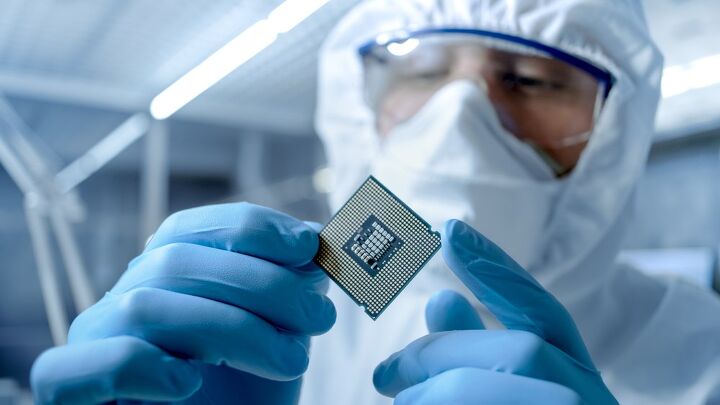

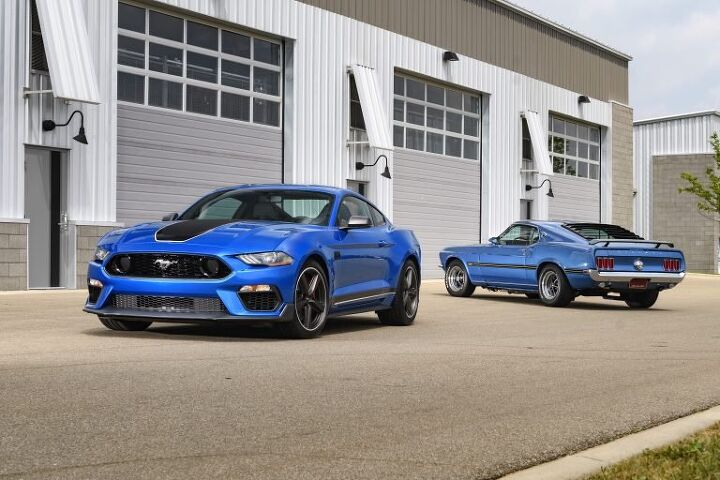

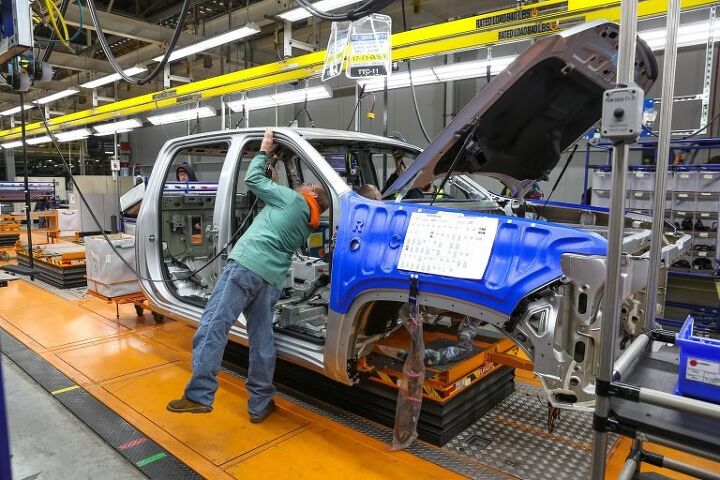
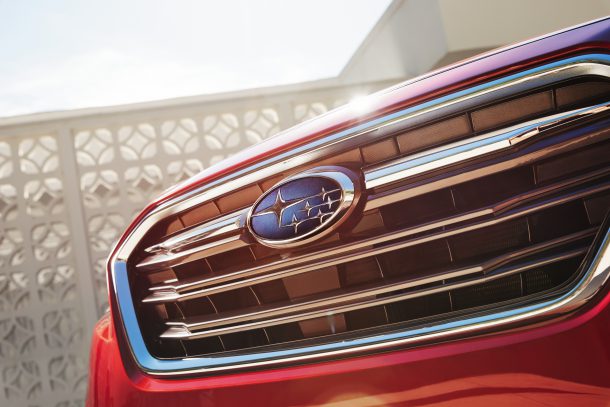


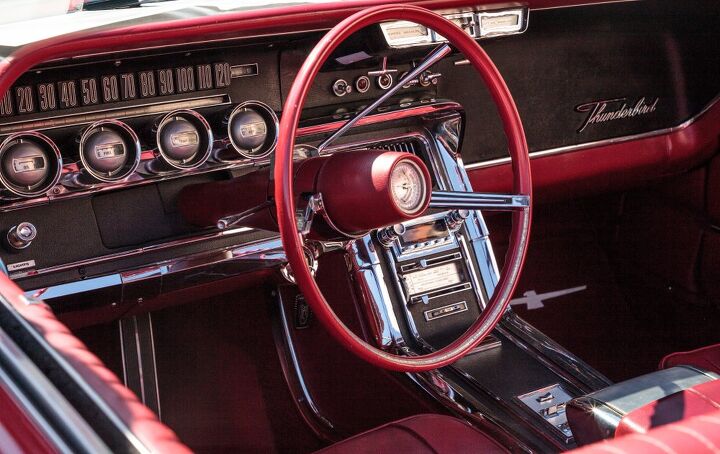














Recent Comments